Scuba Diving Employment:
Recreational Diving Jobs
Types and Salaries/Pros and Cons
So you are thinking scuba diving employment might be just the thing for you. After all, what's not to like if you love diving?
Getting paid for what you love to do is great. We should all be so lucky.
In this series of articles, I will explore the world of scuba diving jobs. Like all jobs, there are pros and cons to working in the dive industry (as hard as that may be to imagine!).
Here we will begin our review of careers in the dive industry with a look at recreational diving jobs. (For our complete list of articles on scuba diving job click here.)
Recreational Dive Jobs
When people think of jobs in the dive industry, they typically picture a divemaster going out on a few dives a day and then calling it quits.
What could be better than doing that and getting paid for it in the process?
Well, not much, except there is more to being a divemaster than meets the eye, as is the case with many scuba dive jobs. However, there are several other avenues for scuba diving employment in the recreational sector besides a divemaster.
Which scuba diving job is best for you is all about your personal preferences and skills. You need to assess what you want and what level of training and skills you have to offer.
Obviously, the more training and skills you have the more job opportunities in scuba diving will be open to you.
First, let's discuss where you might find scuba diving employment. The following are the major sectors within the recreational sector where you might find a job:
Scuba Diving Employment:
Retail Dive Shop
This is probably the most popular and most common way to start a career in the dive industry. There are lots of dive shops in the States, the Caribbean and pretty much worldwide.

A "Beneath the Sea Expo" where many participants in the dive industry exhibit their goods and services. Might be a good place to network for that job.
A retail dive shop is a good place to start no matter what you want to do in the dive industry. You'll get great experience and may also have the opportunity for free dive travel.
I have a full article on jobs in a retail shop, including salary, here.
Scuba Diving Employment:
Resorts
This is probably the sector that is considered the most "glamorous" of scuba diving jobs.
With resorts all over warm water destinations, there is alot of opportunity for workers. What can you expect working in one of these resorts and what can you expect to earn?
I also have a full article about dive job opportunities and salaries at resorts here.
Scuba Diving Employment:
Live Aboards
Liveaboard dive boats are another potential source of scuba diving jobs.
It is obviously more focused and geared to the diver than working on a cruise ship. In addition, unlike a cruise ship, itineraries are obviously only in places that have great diving.
The much smaller size of a liveaboard also makes it a much different experience than working on a cruise ship.
However, like a cruise ship, an essential part of the job is interacting with the guests. So you must be outgoing and friendly and enjoy this aspect of the job.
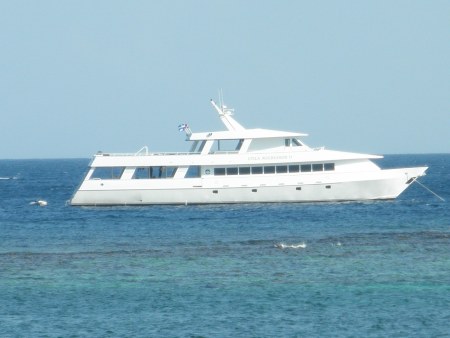
The Utila Aggressor liveaboard dive boat anchored off of Roatan, Honduras
Employees are usually expected to multi-task and 12 hour work days are not uncommon.
A story by one divemaster I read said they even cleaned the toilets (though I doubt this is the norm). But he didn't mind since he worked 4 days on, 2 days off, dove for free and was getting paid at the same time (of course, not alot).
Requirements typically include specialty dive certifications in addition to your instructor certification. For instance, a job as a scuba instructor on the Aggressor Fleet requires 5 specialties.
Of course, there are other jobs besides instructor on a liveaboard where you can combine work and your love of diving. Stewardess, galley helper, chef and deckhand are a few of the possibilities.
Salaries are in the low to moderate range and vary from ship to ship. Gratuities usually comprise a significant portion of compensation on liveaboards. So keep smiling!
You can probably expect to make in the $15,000-$25,000 range with most probably closer to the lower end.
Of course, as one divemaster on a liveaboard says - it's a lifestyle choice and I don't do it for the money.
Scuba Diving Employment:
Cruise Ships
Another option for scuba diving jobs is in the cruise industry. Cruise ships have watersports programs, most of which contain snorkeling and diving programs.
While some cruise lines outsource the dive program (use a local operator once in port), some lines, such as Royal Caribbean, still have their own dive staff on board and on their private islands.
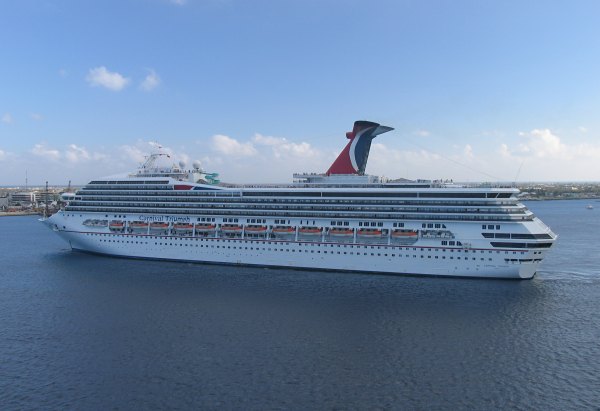
You might be able to land a job on a cruise line that has their own dive staff.
In a watersports program you will be expected to do the typical jobs such as teaching diving and snorkeling, maintaining equipment, etc. However, on a cruise ship your duties typically extend beyond water related duties.
As an employee, interaction with passengers is usually required and you work with the cruise director's staff. Thus an extroverted, friendly personality is pretty much essential to this type of position.
If you don't like being social and organizing events, you might want to skip this position.
Employees have to sign contracts which typically range anywhere from 4-12 months. Unlike a land based job, you work several months on board and then have a few weeks off.
As an example, one job I saw required 6 months on board and then you had 4 weeks off. Another required 6 weeks of work and then 2 weeks off. While onboard a workweek is usually 6 or 7 days long. Hours can be long with 12 hour days not uncommon.
Room and board (and often medical coverage) are included while on the ship but there are no benefits when off the ship. You can expect starting salaries in the $1,500-$2,500/month range.
Scuba Diving Employment:
Other Job Opportunities
Of course there are many other avenues to having a diving related career. You can have various positions that don't even involve getting in the water.
Other choices would include such things as marketing, photography, videography, repair technician, working for a dive equipment manufacturer, etc. If you don't like working with the public, some of these other options might be the one for you.
Whichever avenue you choose, I hope you find the scuba diving employment opportunity of your dreams. Good luck!
Besides the articles linked to above, we also have these other articles on dive jobs:
Introduction to Scuba Diving Jobs Introduction //Diving Employment Resources //Commercial Diving Jobs
Want to stay down longer and improve your buoyancy control and other diving skills? Our free report "Increase Your Bottom Time" along with our practical, weekly actionable tips will have you looking like a seasoned diver in no time. So come join us and see improvement on your very next dive!
(Click on the photo to join us now!)
What's New
-
Unofficially Summer
May 25, 24 07:19 AM
Well it is finally here. Memorial Day weekend and the unofficial start of summer! Wishing everyone a happy and healthy holiday weekend. Hopefully the weather cooperates wherever you are and you will b… -
Happy New Year
Jan 01, 24 06:00 AM
Happy New Year everyone! I hope everyone is well and had a fun New Years Eve! May your new year be filled with lots of wonderful dives. All the best to you and yours in 2024! Let the dives begin. -
Happy Holidays
Dec 14, 23 05:05 AM
I hope everyone is enjoying the holiday season! I am always amazed at how fast time flies and another year is just around the corner. I wanted to pop in and say hi to everyone. I am doing some full ti… -
3 Common Scuba Diving Mistakes New Divers Make
Feb 23, 23 02:18 PM
In this video, I share 3 common scuba diving mistakes beginner divers make. Learn how to correct these for a better - and safer - dive. -
Scuba Diving Tipping Etiquette: How Much And When To Tip Scuba Crew
Feb 06, 23 03:34 PM
Not sure of scuba diving tipping etiquette? In this video I share who to tip, when to tip, how much to tip, tipping on liveaboards, tipping an instructor & more
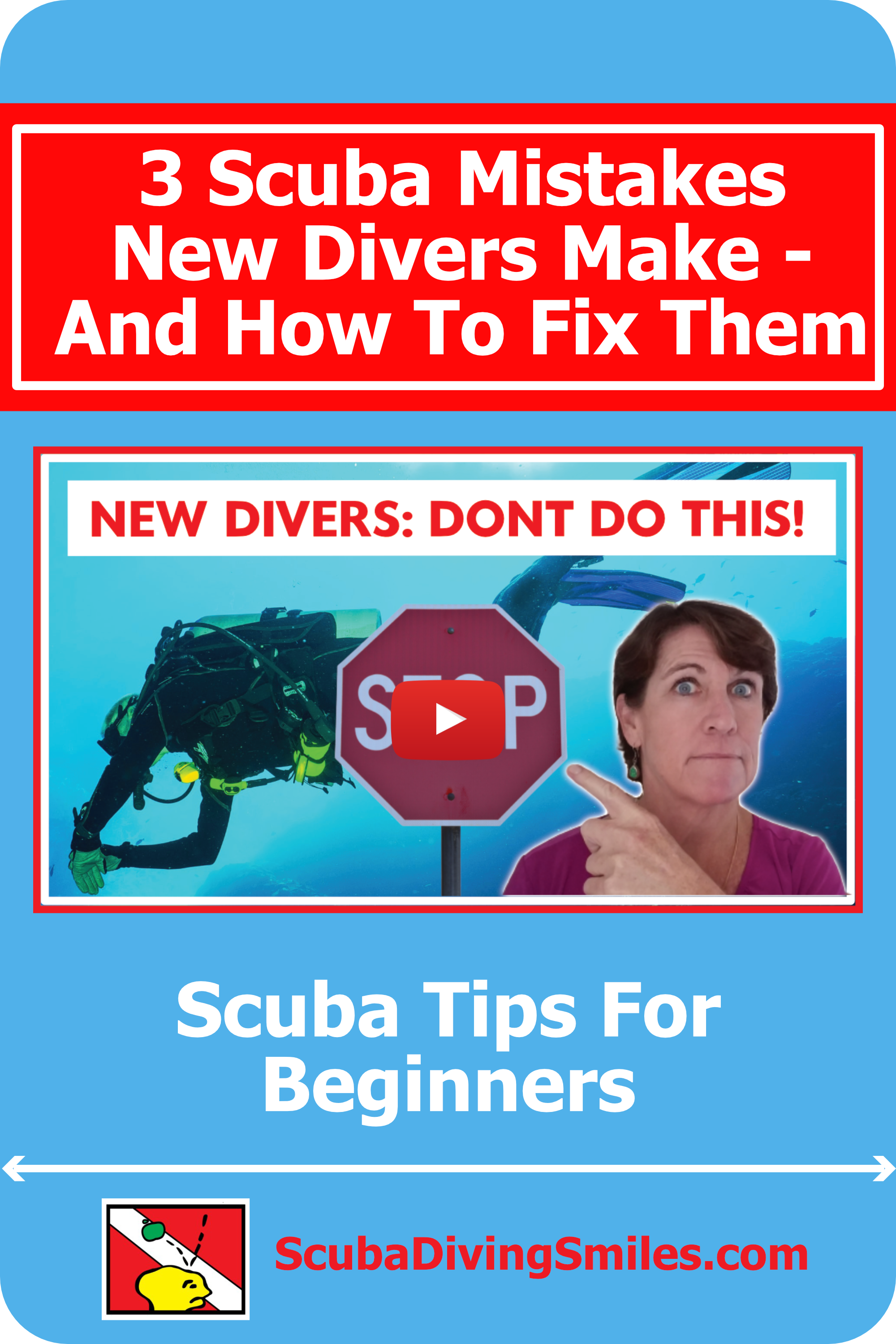
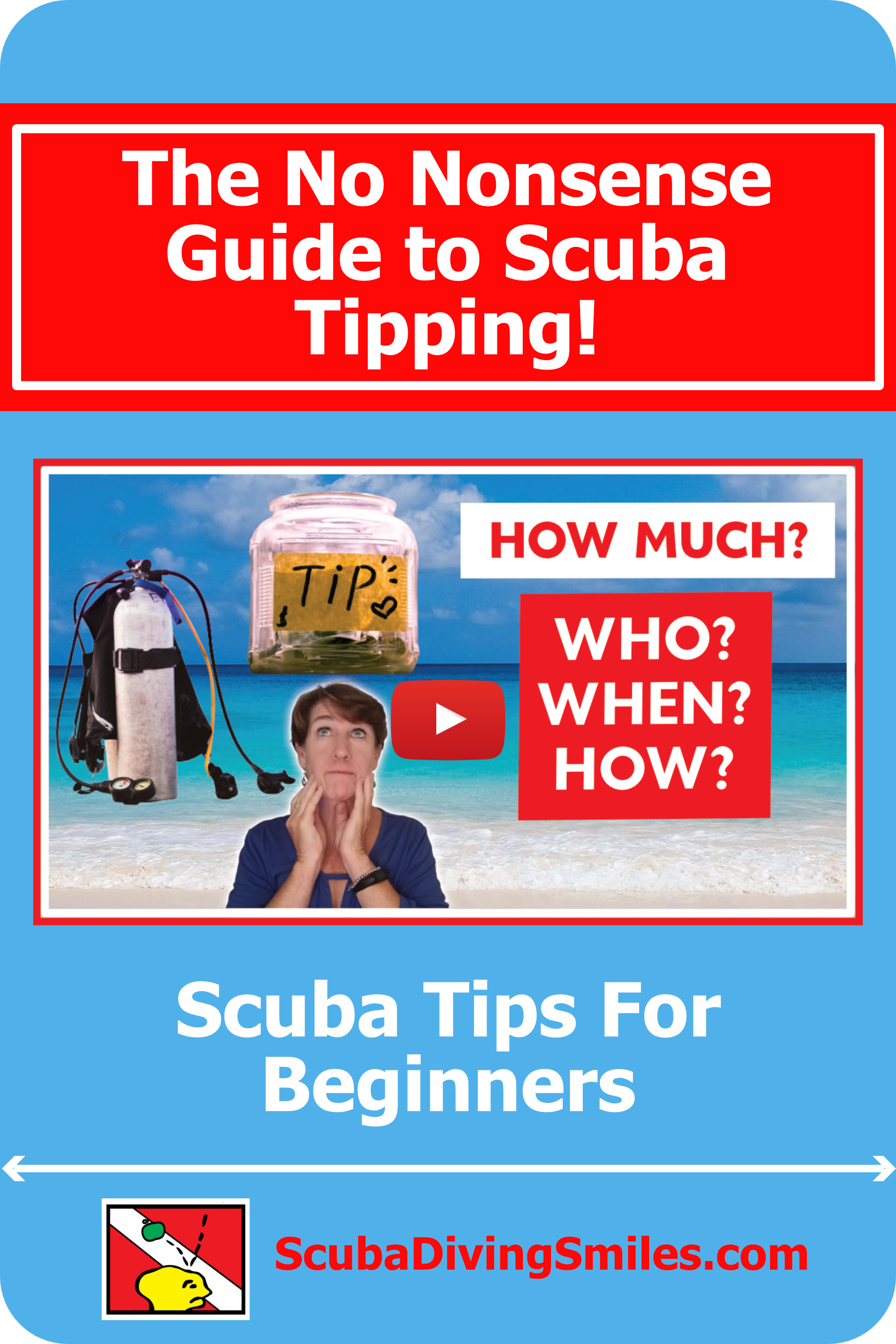
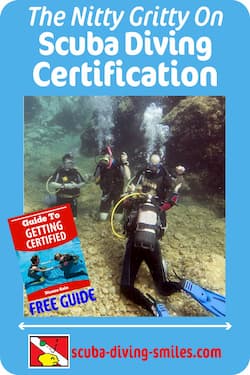
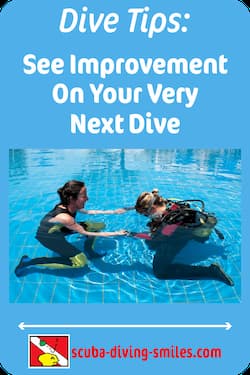
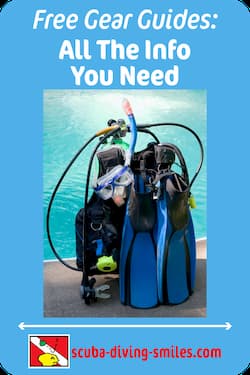

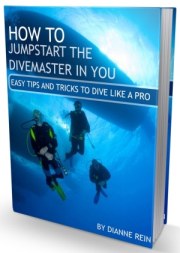

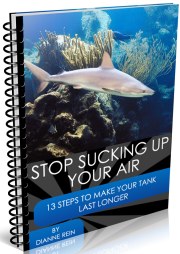
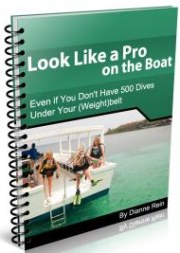

New! Comments
Have your say about what you just read! Leave me a comment in the box below.